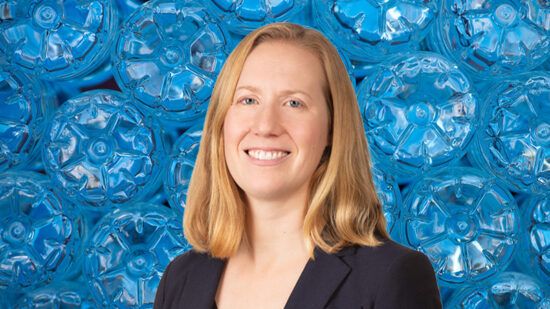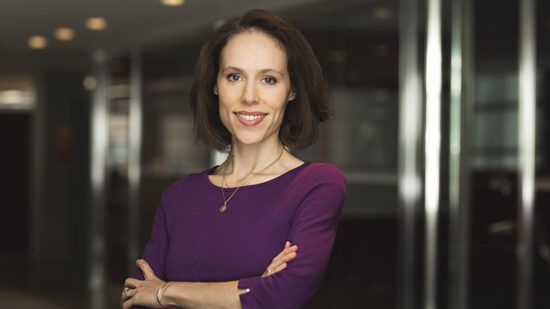Achieving the Sustainable Development Goals (SDGs) by the 2030 deadline will require the kinds of projects that can deliver significant development impact to areas where the needs are greatest, namely the world’s least developed countries (LDCs).
But in order for such projects to deliver impact, they may be appropriately financed to do so.
So, the question is: how can interested actors—from governments and philanthropic donors, investors and development finance institutions—identify which projects possess such potential?
UNCDF has been operating on the basis of its own answer to that question: the Dual Key system; a product of UNCDF’s Local Development Finance Practice—a centre of excellence and innovative fund for local government finance and local economic development finance in the world’s 46 least developed countries. The Dual Key is a multi-factor analysis that helps UNCDF answer the question that will determine whether the investment will move ahead to financial disbursement.
The first step of the analysis is the ‘Technical Key’ or ‘Impact Key’. By using this key, UNCDF determine whether an investment will deliver local impact in the form of local economic development, emergency response, women’s economic empowerment, climate change, food security or any other relevant form, thereby ensuring that the investment is responsive to its development objectives and the SDGs.
The second step of the analysis is the ‘Financial Key’ that focuses on the financial impact of the projects, evaluating the business model with a range of strategic and financial tools. However, this second key is not only about bankability, but also looks for the financial impacts in the form of sustainability and follow-on investment potential. The objective of this tool is above all to determine if the project presents a potential to sustain its activities based on its own business model once the investment is done.
More importantly, it is the investment principles underlying the use of the tool that determine the returns or impact it will yield. And when it comes to the dual key system, what determines its success are the principles of successful local economic development as we understand them.
One of those principles involves the role that value chains can play in advancing or undercutting local development. An essential reality is that value chains can just as easily extract wealth from local economies as they can add value to them. More to the point, just because an SME is locally based does not mean that it will not transfer disproportionate amounts of wealth to its foreign affiliate. Based on this understanding, we use the dual key approach to source SMEs that contribute to development within the territories they operate in, specifically through assessing externalities as well as forward and backward supply chain linkages.
Secondly, there is the principle that domestic banks are a critical partner in building local economic diversity and capital market development. While domestic banks in LDC markets are known for having a low threshold for risk, these markets may very well possess banks with an appetite for riskier investments. An essential reason is that domestic banks do not have to worry about exchange rate or forex risks and are better able to understand the national political economy as well. But even if domestic banks are willing to embrace riskier investments, they do not always have the expertise to invest in SME finance beyond micro finance, real estate and import-export credit, or they are not able to identify good quality projects.
In this context, the dual key system purposely collaborates with local governments and domestic banks to ensure the policy, regulatory and investment climate is conducive to local economic development and private sector development, and then helps develop and de-risk pipelines of investable projects that are of high quality and standards to induce markets, domestic banks as well as crowd-in financiers, domestic, regional and international to invest in SMEs.
Finally, the dual key approach is more than ‘business development services’. Through detailed collaboration and structuring of SME investment proposals as well as continuous engagement with the domestic financial sector and domestic regulators, we are working to ensure that UNCDF’s seed capital has a wider demonstration effect beyond the individual transaction. For example, in our effort to increase local investor schemes for SMEs, we are increasingly succeeding in bringing national sovereign funds into LDCs to invest alongside domestic banks, which would hopefully create a signal effect for all types of investors including persuading international capital to follow to the LDCs. (We partnered with FONSIS Sovereign Fund Strategy Investment in Senegal to invest in equity in SMEs that are women led.)
This reflects what may be the most important principle—that we must always strive to leverage our investments to demonstrate the larger investability of the market, because that is how transformative effects can be created and how Foreign Direct Investments can sustainably be redirected to the LDCs.
The use of the Dual Key System has been instrumental in the LDCs, and other countries in need, to build stable and resilient local economies and by leveraging a range of technical expertise and investment instruments to reduce and limit economic and social hardship for poor communities. As the question persists of which projects possess development potential, UNCDF stands ready to provide its answer.
Global ESG Summit
Last Word Media and Bonhill are excited to present the inaugural Global ESG Summit, which will follow the sun across four time zones on 27 May 2021, in partnership with United Nations Capital Development Fund (UNCDF), with executive secretary Preeti Sinha confirmed as keynote speaker.








